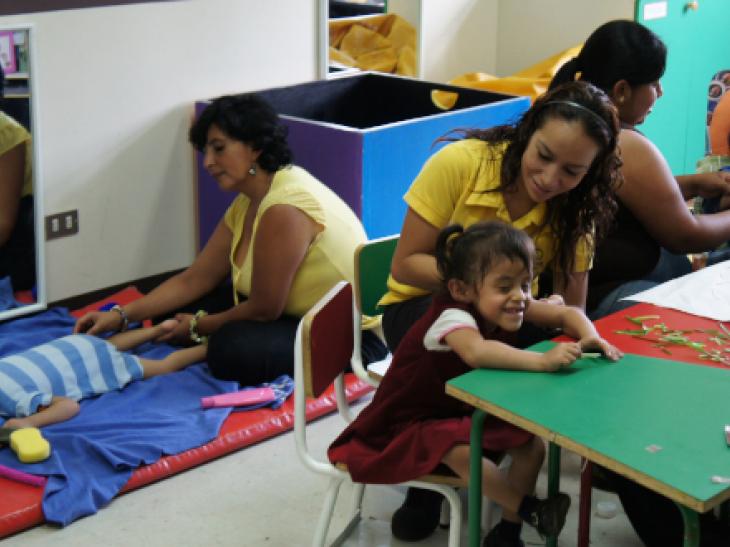
CBM is a new member of the GIRDD LAC network
CBM is an international Christian development organization. It is committed to improving the quality of life of people with disabilities in the poorest communities of the world, regardless of ethnicity, gender or religious belief. It also promotes inclusion in disaster risk management and in emergency situations.
Based on its core values and with more than 100 years of experience, CBM considers poverty as both a cause and a consequence of disability, working in cooperation with local organizations and civil society to build an inclusive society for all.
CBM is a federation composed of 11 countries as member associations based in Germany, Australia, Canada, the United States, Ireland, Italy, Kenya, New Zealand, the United Kingdom, South Africa and Switzerland, with an international office and a network of regional and national offices and that work closely with our partner organizations in Africa, Latin America and Asia.
Approach to disability
Inclusive Development and Disability is the framework for their initiatives and the key issue that guides their activities and the desired impact. CBM believes that this is the most effective way to generate a positive change in the lives of people with disabilities living in poverty and their communities. Through this approach of Inclusive Development and Disability and our global network of partner organizations, CBM addresses the barriers that limit access and participation to ensure the full involvement of people with disabilities as empowered self-advocates in all development and response processes in emergencies
Disability and disasters
CBM also promotes inclusion in disaster risk management and in emergency situations.
• CBM is part of the Asia-Pacific network for the inclusion of people with disabilities in disaster risk reduction (DiDRR network; http://www.didrrn.net) and has influenced different international forums so that Inclusion is recognized as an inseparable element of risk management (within the framework of Sendai).
• CBM is present in disaster situations to respond to the different needs of people with disabilities and their families. See, for example, news about their recent responses in Haiti and Ecuador: http://bit.ly/2BFoadA / http://bit.ly/1qW2elQ
• CBM has developed valuable tools (or collaborated in its elaboration) so that those who work in humanitarian action have elements to make inclusion a reality.
• All under the same roof (in Spanish). Everything you need to know so that temporary accommodations are inclusive. Almost 200 pages of orientations. Held with Handicap and the International Federation of the Red Cross: http://bit.ly/2pyIcO0
• Guidance note on disability and disaster risk management for health: http://bit.ly/2okzdAH
• Humanitarian inclusion standards for the elderly and people with disabilities. Backed by the Sphere project; At the beginning of this year 2018 we already have the final version (for now only in English). From the ADCAP consortium: http://bit.ly/2C0CIWb
• Humanitarian Hand on Tool (HHOT). Humanitarian workers can already have all the necessary information about the inclusion of people with disabilities on their cell phones. On the web: https://hhot.cbm.org. Or to download as an application: http://bit.ly/2stwqdK (for now only in English).
• See other publications (in English): http://bit.ly/2DWC5uh
• It also has several videos that delve into the justification of inclusion and how CBM works in emergencies (see youtube channel). One of them, for its brevity and clarity we translate it into Spanish from the GIRDD network. It describes why risk management should be inclusive and some key actions in this regard: The incorporation of CBM into the GIRDD-LAC network will have a great impact in the field of the promotion and development of inclusive management of disaster risk and disability in the continent. The GIRDD-LAC network was set up to promote the theme in the region and thus comply with the provisions of articles 11 and 32 of the United Nations Convention on the Rights of Persons with Disabilities, in the Sendai Framework for Disaster Risk Reduction 2015-2030 and in the 2030 Agenda for Sustainable Development. We welcome CBM to enable a greater exchange of knowledge and good practices in the field of inclusive disaster risk management.


